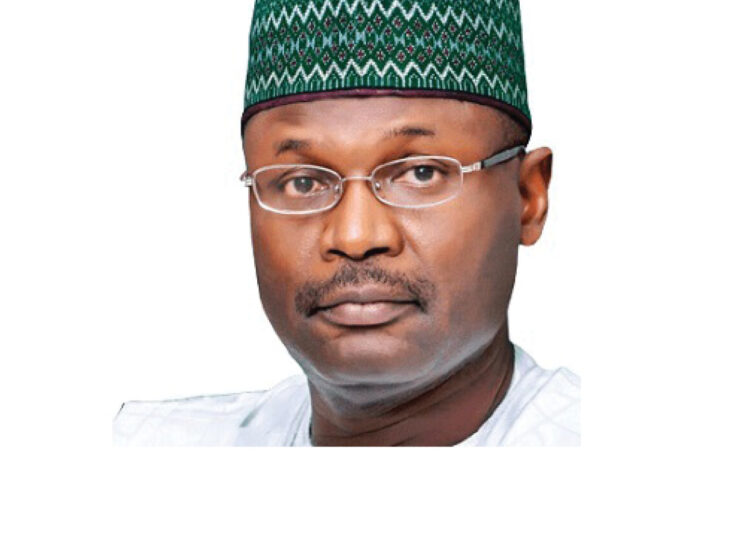Nigeria’s journey toward achieving credible elections has been long, torturous, and, I daresay, elusive. Since 1999, the number of litigations at election petition tribunals has steadily increased after each electoral cycle, indicating how flawed the electoral process remains.
Elections in Nigeria are routinely rigged, and the electoral umpire—the Independent National Electoral Commission (INEC)—is often complicit. This explains, in part, why many Nigerians have lost faith in the process. Were it left to public sentiment, many Nigerians would opt for military rule, not that this is a viable option.
Election integrity matters deeply. In a country with low public trust in institutions, flawed electoral processes carry dangerous implications. They not only encourage voter apathy but also increase the likelihood of post-election violence, as has been witnessed in the past.
The average Nigerian voter believes that their vote does not count, convinced that the system is rigged in favour of the ruling party or the wealthiest candidates. Confidence in the Election Management Body (EMB) continues to erode, which has alarming implications for democratic legitimacy.
As Nigeria inches closer to the 2027 general election and the tenures of INEC Chairman Prof. Mahmood Yakubu and several commissioners set to expire, attention is shifting to who their replacements might be. Not surprisingly, political scheming has already begun, with the usual efforts to manipulate who emerges as the next INEC Chair and commissioners. However, the question remains: How should the INEC Chairman and commissioners emerge?
A Flawed Process
There is something fundamentally wrong with the way INEC leadership is currently appointed. The framers of Nigeria’s constitution designed the process to favour the president and, by extension, the ruling party.
The constitution explicitly vests the power of appointment in the president, subject to parliamentary approval. However, this system is profoundly flawed. It enables a partisan actor—the president—to appoint those who will oversee elections in which they or their party have a vested interest.
One thing is clear: the process lacks transparency. It undermines INEC’s credibility and compromises its ability to act impartially, which is unacceptable in a democratic setting.
The need for sweeping electoral reforms is undeniable. At the heart of these reforms lies the question of how INEC officials should be appointed. Electoral reform must prioritise overhauling this appointment mechanism to prevent political capture of the EMB.
As things stand, there is a glaring conflict of interest. Presidents who contest elections—or throw their weight behind their party’s candidates—cannot be trusted to appoint neutral umpires. They predictably select individuals who are aligned with their interests. A similar dynamic plays out at the state level, where governors influence appointments to State Independent Electoral Commissions (SIECs), leading to questionable victories for ruling parties in local elections.
Needed: A Radical Reform
Now is the time for bold and radical reform that strips the president of the power to appoint EMB members. Why, for instance, should President Bola Ahmed Tinubu—widely expected to seek re-election—be solely responsible for appointing the INEC Chairman and Resident Electoral Commissioners?
While the law requires parliamentary confirmation, the current National Assembly has earned a reputation as a rubber-stamp legislature—an assemblage of loyalists and yes men more likely to endorse than scrutinise executive decisions. This leaves the process open to abuse, undermining the credibility of elections and the public trust in democratic governance.
Lesson from Kenya
Nigeria can learn valuable lessons from Kenya. Although its system is imperfect, Kenya’s model provides a more structured and participatory process that reduces executive overreach.
Here’s how Kenya does it: The President constitutes a selection panel with members drawn from diverse institutions—the Public Service Commission (two representatives, male and female), one representative each from the Parliamentary Service Commission, the Political Parties Liaison Committee, the Law
Society of Kenya, and two representatives from the Inter-Religious Council (again, male and female representatives).
At its first sitting, the panel selects its chair and vice-chair. It then invites applications from qualified Kenyans, shortlists candidates, and conducts public interviews. The public follows this process closely. Ultimately, the panel recommends names to the President, who then forwards them to parliament for approval.
While Kenya’s system is not immune to manipulation, it is vastly superior to Nigeria’s opaque and highly politicised process. It demonstrates the possibility of creating a more inclusive and transparent approach to EMB appointments.
Revisiting the Uwais Committee
There is a way forward. In 2007, recognising the flaws in the election that brought him to power, the late President Umaru Musa Yar’Adua inaugurated the Electoral Reform Committee, chaired by former Chief Justice Muhammadu Uwais.
The committee’s recommendations were far-reaching. Most importantly, the committee proposed stripping the president of the power to appoint members of the INEC board, a move aimed at insulating the commission from political interference and strengthening its independence. Unfortunately, Yar’Adua and his successors failed to implement this pivotal recommendation. The National Assembly, lacking political will, has consistently avoided enacting it into law.
This leaves the nation with the president appointing the chair and commissioners for the INEC. How can fairness be expected from an electoral commission whose leadership is handpicked by the individual or party contesting the elections? Ours is a situation where a player in the game appoints the referee, yet we expect a level playing field. Are we serious?
After each election, questions about credibility, transparency, and fairness dominate public discourse. In 2023, Nigeria spent approximately N305 billion conducting a general election riddled with irregularities, especially concerning the manipulation of electoral institutions.
As preparations for 2027 begin, it is clear that Nigeria is poised to repeat the cycle unless the system is fundamentally restructured. How much more will Nigeria spend on yet another exercise that risks being as disappointing as those before it?











